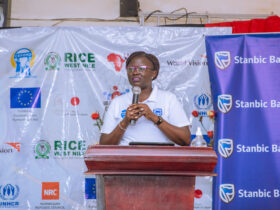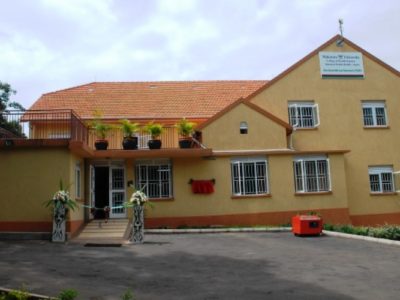
For any nation to achieve her objectives and exploit her full potential as far as industrialization is concerned, innovation coupled with the application of the right technologies must be followed.
This, however, cannot happen unless proper research is conducted to ensure the success of an idea or business since it is the research function that provides a platform for creativity and innovation to flourish in an organization.
It is therefore not surprising that Prof Charles Kwesiga, the Executive Director of the Uganda Industrial Research Institute (UIRI), has led a team that over the years, has invested their time and efforts to ensure that ideas are hatched, incubated and developed into great enterprises that provide jobs for Ugandans on top contributing to the road that will finally see Uganda achieve her middle income status dream.
Mandated with fostering industrial and scientific development and to contribute to the improved quality of life of the people of Uganda, UIRI under Prof Kwesiga’s stewardship has seen the birth of some of the most inspiring enterprises.
Nurturing startups
A typical example of an incubated start up that is benefiting from UIRI is the Lira peanut processing plant. The facility, established in 2008 was designed, built and equipped by the Uganda Industrial Research Institute (UIRI).
With sufficient technology, skills piloting, start ups are supported to grow until they are able to sustain themselves. The relationship is more like that of a young man who emerges from the guardianship of his parents to start his own family.
The ultimate goal is therefore to nurture robust startups into industrialised entities that are able to create jobs, promote exports and boost revenue and eventually the middle income status.
Another enterprise that has benefited from the parentage of UIRI is Amagara Skincare Limited that opened shop in 2012 but penetrating markets in neighboring Rwanda, Burundi, Democratic Republic and Kenya.
The above examples and other institute’s incubatees have been afforded the opportunity to develop and commercialize well packaged quality products.
More so, the Mushroom Training and Resource Center (MTRC) in Kabale was by 2013 already certified to export mushrooms to the United Kingdom market.
It is important to note that the milestones over the years have seen UIRI rise in rank to gain peer recognition having Prof. Charles Kwesiga elected President of the prestigious
World Association of Industrial Technology and Research Organisations in September 2014.
The Institute has also been designated a “Centre of Excellence” in Industrial Research for the East African Community (EAC).
This follows the institute’s pioneer production of a thermo-stable poultry vaccine against Newcastle Disease that is readily available on the market. UIRI Business incubator has also accelerated a number of micro and small enterprises that have scaled to commercial production. They are spread across various sectors, such as: agro
processing, biotechnology, renewable energy, ICT, instrumentation, and minerals and materials processing.
Cutting edge technology
The institute has developed cutting edge innovations through a robust Research and Development initiatives such as the grain moisture meter, aflatoxin testing kit, and domestication of button mushroom among others.
Regional processing centers across the country to enhance value addition and promote agribusiness enterprise development along different crop value chains have been established. Some examples include: Essential Oil processing (Luwero), Juice processing (Arua and Mpigi), Peanut processing (Lira), Meat processing (Busia), Wine processing (Mbarara & Kabale) and the Irish Potato processing (Kabale).
Some of these achievements have seen UIRI take the lead as one of the leading R&D, technology and innovation institutions in Africa.
With continued support from the government, UIRI is clearly leading Uganda on a path to an industrialized economy.











